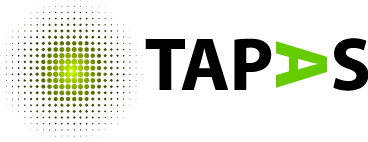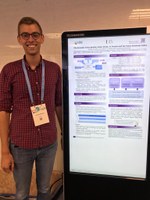31st World Congress of the International Association of Logopedics and Phoniatrics
你好 ("Nǐ hǎo"), everyone !
I attended the 31st world congress of the IALP in beautiful Taipei from the 18th to the 22nd of August 2019.
The IALP is a worldwide organization of professionals and scientists in communication, voice, speech language pathology, audiology and swallowing; its members include scientists, physicians, speech-language pathologists, and researchers, who work in over 57 countries and come from every continent around the world. The IALP's aim is to help professionnals concerned with these domains to collaborate and to strengthen their knowledge through multicultural and transdisciplinar exchanges.
The IALP world congress is organized every 3 years and provides a venue for sharing recent research findings, educational and professional advances, and public information. This 31st edition's topic was “Innovations in Supporting Communication Participation”, and encompassed three main topics: “Speech and Language Assessment: Cross-Cultural Adaptations”; “Impact of Forced Migration on Communication and Social Adaptation”; and “Innovations in Supporting Communication”. A broad range of fields was addressed throughout the presentations, including aphasia, audiology, alternative and augmentative communication (AAC), autism spectrum disorders (ASD), child language and speech, dysphagia, phoniatrics, speech language pathology, fluency disorders, motor speech disorders, multilingual and multicultural affairs and voice.
I had the opportunity to present two posters about my Master thesis: "Validation of the Acoustic Voice Quality Index, Version 03.01, in French" (doi: https://doi.org/10.1016/j.jvoice.2018.12.008) and "The Acoustic Voice Quality Index, Version 03.01, in French and the Voice Handicap Index" (doi: https://doi.org/10.1016/j.jvoice.2018.11.017).
I was positively surprised by the interest of the asian speech and language pathologist community for this objective voice assessment tool. Indeed, the AVQI has been validated in various Asian tonal languages, and is used by some clinicians in their daily practice. Hence, I was lucky to have some very interesting conversations about the implications of using acoustic measures to assess a concept as complex and mutlidimensional as the voice.
I was also given the opportunity to carry out some interviews with experts of the speech domain. Indeed, for my thesis about the clinical relevance of speech intelligibility measures, I implemented an online survey to gather french-speaking clinicians' information about the assessment of speech production disorders in adults, to find out about the current practices and the needs and lacks reported by these professionals. The purpose of the interviews at this conference where thus to supplement clinicians' data with a semi-structured interview of international experts in the field of speech.
Overall, this was, again, a very positive and constructive experience, for my future clinical practice as well as for my PhD thesis !
谢谢 ("Xièxiè" = "Thank you") TAPAS !

